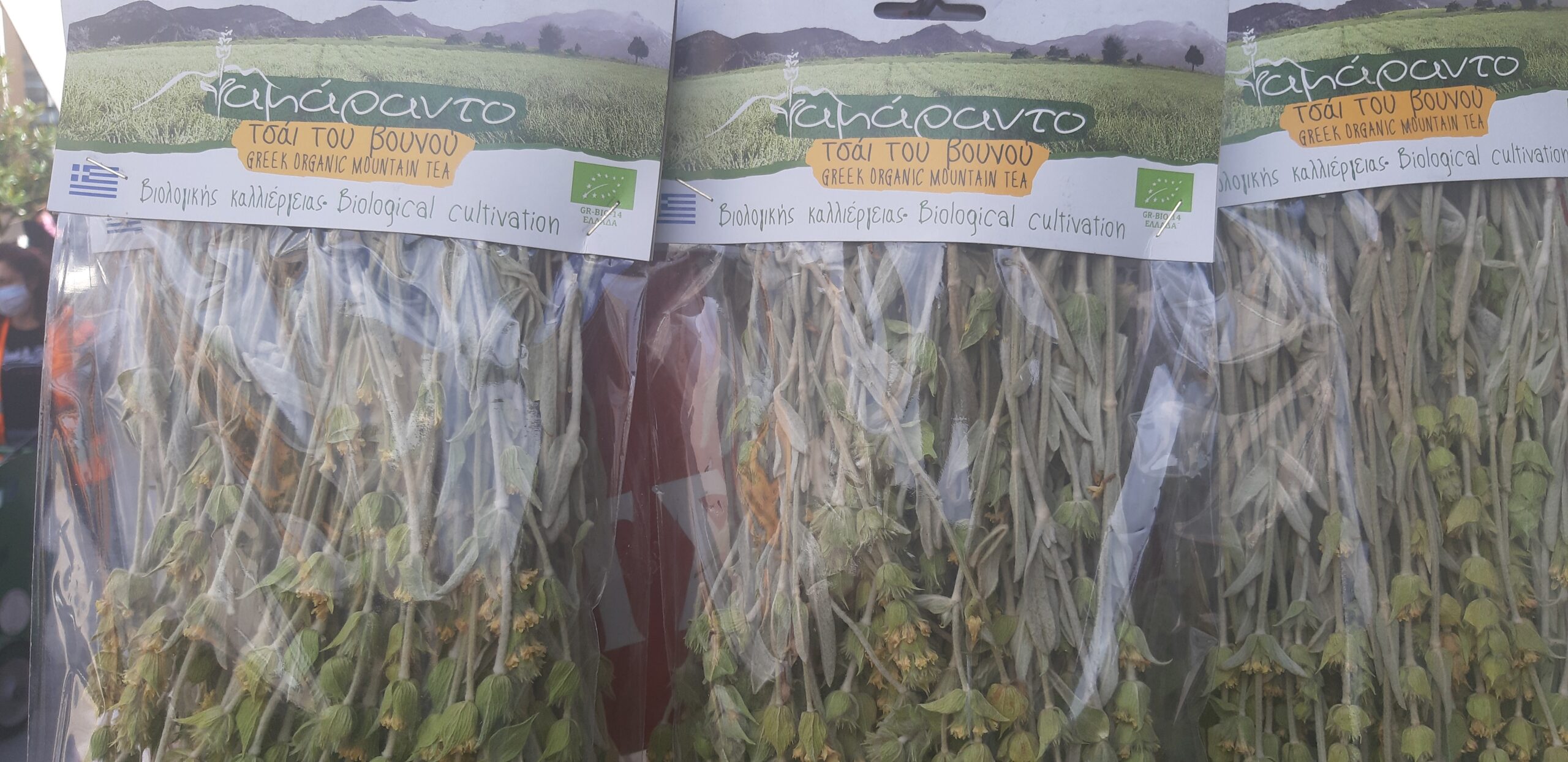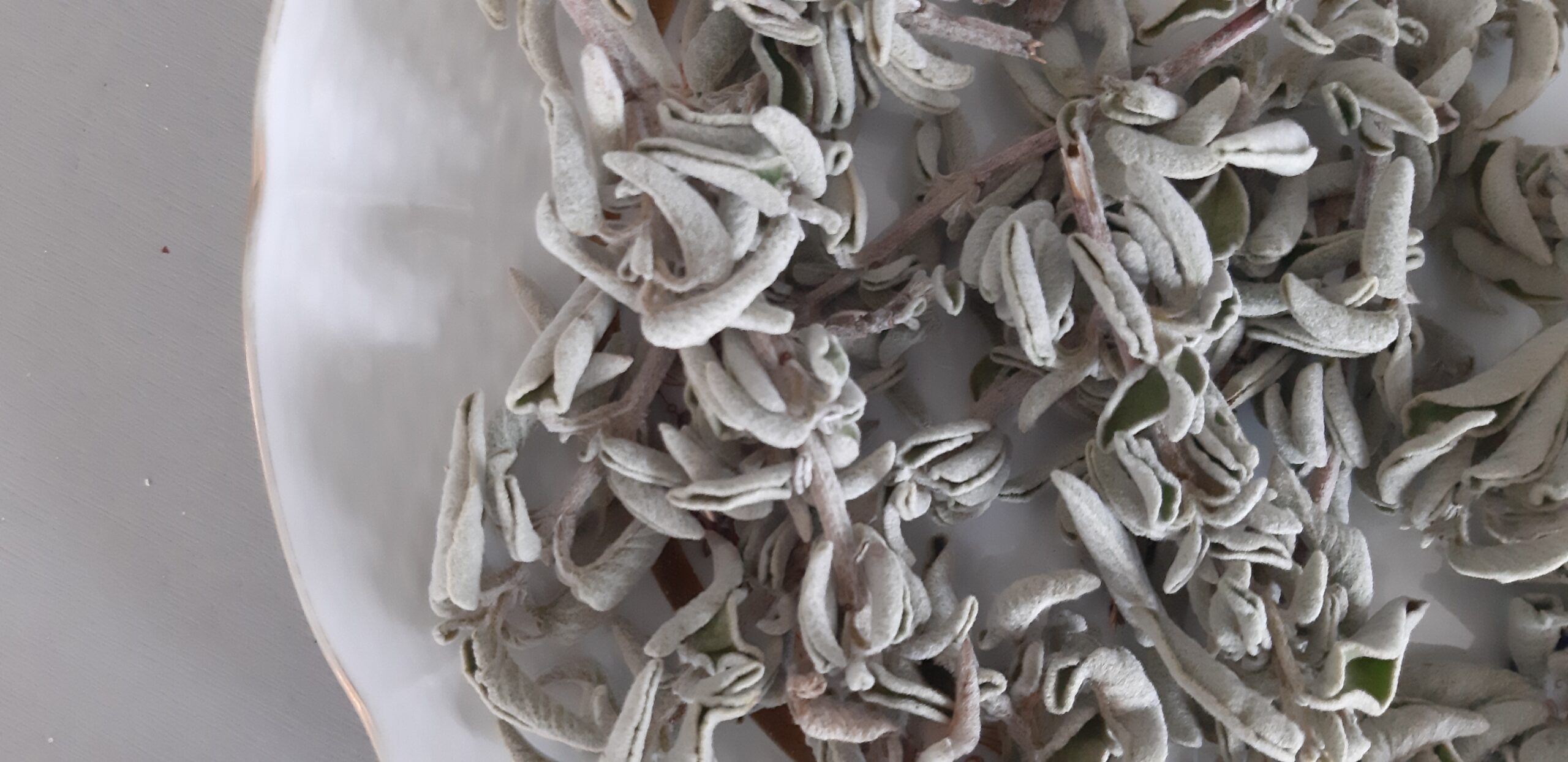Greece, Greek cuisine
A Guide To Greek Herbal Teas
A lot has been written about Greek coffee, but a less well-known beverage and traditional Greek product are the different types of Greek herbal teas. They have plenty of health benefits and are associated with staying at home and keeping warm during the cold months so now we have a perfect chance to learn more about them.
Greek Mountain Tea
No Greek household is ever short of Greek mountain tea or as we say in Greek, tsai tou vounou (τσάι του βουνού). It is made using the dried leaves and flowers of Sideritis plant (ironwort), which grows mainly in Greece, Albania and Bulgaria.
The name is a good fit for the tea since the plant is found on rocky slopes at high altitudes. It’s common for the locals to go out in the countryside and gather it rather than grow it in the fields or their gardens. The leaves and flowers are then left to dry and store in airtight containers until it’s time for brewing.
The tea contains high levels of antioxidants and large amounts of essential oils, flavonoids, sterols, and other phytonutrients. It is mainly used to combat colds, respiratory problems and indigestion, but also has soothing effects.
Greek mountain tea comes as loose leaves rather than tea bags and can be found in grocery stores and shops that sell herbs and spices.
If you find yourself in the Greek countryside, you’ll probably come across little agriculture cooperatives that gather and sell local mountain tea, so make sure to buy some.

More types of Greek herbal teas…
Faskomilo (sage)
Faskomilo (φασκόμηλο) grows in Mediterranean climates and its Latin name, salvia, comes from the Latin verb salvare which translates as to save or to cure.
Its leaves have a strong smell and they are used both for cooking and for brewing beverages with numerous healing qualities. In ancient times, it was widely used for as an antiseptic on open wounds and can still have a soothing effect if your skin is irritated, but we wouldn’t necessarily recommend for you to replace more modern treatments.
As a beverage, it is often seen as a natural treatment for throat infections, inflammation of the gums, mouth ulcers as well as other small irritations in the area of the mouth. Faskomilo boosts the nervous system, improves memory and revs up blood circulation.

Throumbi (savory)
Savory or, in Greek, throumbi (θρούμπι) is small bush-like plant with pink, purple or white flowers that blossoms between July and September in Greece and other countries around the Mediterranean Sea.
Its therapeutic qualities have been known to the Greeks since ancient times and they have been using it for cooking since then. Nowadays, we know that it helps with indigestion, stomachache, nausea and diarrhoea.
Levanda (lavender)
We use lavender when storing our clothes to help keep them fresh and moth-free, but did you know that it can also be brewed into a fragrant beverage with countless healing qualities?
Lavender grows in abundance in Greece. Its beautiful purple flowers can be dried and then brewed to create a beverage that soothes and relaxes the mind and body. It is supposed to help with head- and tummy aches, and to relieve stress and insomnia. Lavender blooms and gets collected during the summer months.
Herbs and their medicinal qualities
Previous generations, especially in the countryside, used to rely a lot to herbs and their healing or health benefits considering that access to a doctor was more difficult than it is today. Not every village had a doctor and not everyone was able to afford them. As a result, people – especially women – sought to harness the power of different plants and herbs to offer relief from different ailments.
Nowadays, brewing someone some tsai tou vounou or another herbal tea is often the first response when someone is down with a cold or suffering from a tummy ache, but they are secondary to modern medicine, especially when it comes to treating more serious or chronic diseases.
Teas are seen mainly as a pleasant alternative to coffee that tastes nice and soothes the mind and body after a stressful day.
Preparation
The recent years, Greek herbal teas became popular abroad as well, and are now also available in teabags and nice packaging for the international market. However, in Greece we usually prefer herbal teas coming in loose leaves rather than tea bags – it’s a sign that they’re collected locally and are fresh.
Preparing a brew at home is very easy:
put some water in the kettle and bring to a boil.
When the water is boiled, turn off the heat and add a handful of your favorite tea. (do not let the tea boil in the water). Let it simmer for a few minutes.
The longer you leave it the stronger its taste and smell will be.
Use a sieve on top of your favorite mug to gather the leaves.
If you prefer your tea sweet, why not add a spoonful of Greek honey?
Enjoy!
++++++++++++++++++++
PS. If after reading this, you still prefer coffee to tea, then read here my blog article about the different Greek coffees, and how to order them 🙂


Excellent article. What about Τσάι χαμομήλι (Camomile) too? In my experience it’s very common and popular among Greeks.
THanks John, Ευχαριστώ πολύ! Happy you liked it. Yes indeed, the camomile is very known in Greece as well, I guess I did not add it, since this is also very known abroad. So I tried to concentrate on those teas that non-Greeks are less familiar with. All the best, greetings from Athens